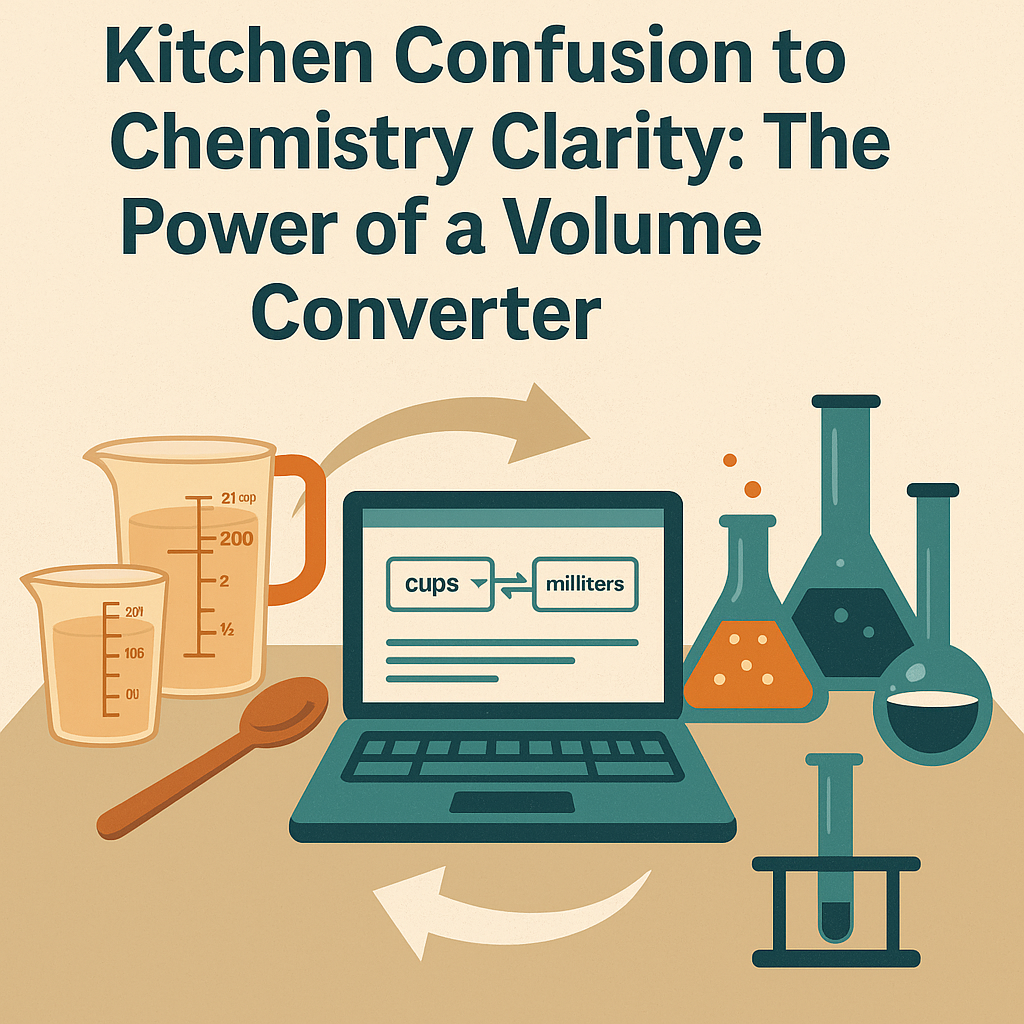
Converter
Volume conversion affects everything from recipes to science labs. Whether you’re scaling a dish or mixing chemicals, precision matters.
Educational Overview
1 liter = 1000 milliliters
1 cup = 240 milliliters (U.S. standard)
1 gallon = 3.785 liters
Volume units originated from varied local customs—like a “cup” in the U.K. being 284 ml vs. 240 ml in the U.S. The metric system simplified things in the 18th century, but imperial units still persist.
Scenario
You’re trying a French recipe that calls for 0.5 liters of stock—but your measuring cups are in ounces. A converter quickly tells you it’s ~17 fl oz.
Scientific Use
In pharmaceutical labs, misconverted volume units can alter dosages. In 2006, a hospital error in fluid measurement led to an overdose—underscoring the importance of accuracy.
Use the Tool
Get the conversion right using our [Volume Converter] https://www.21calculators.com/conversion/volume-converter
FAQs
– Why do cups vary?
Cup sizes differ by country. Always check your source.
– Can I use this for dry ingredients?
No—volume isn’t always equal to weight. Use a kitchen scale for solids.
Summary
Volume conversions aren’t trivial. Use a calculator to ensure accuracy, consistency, and safety.
